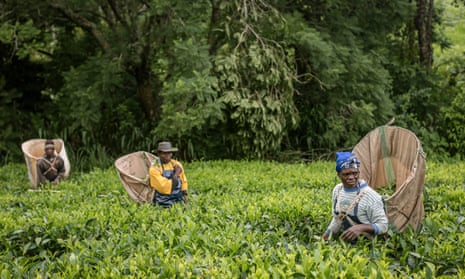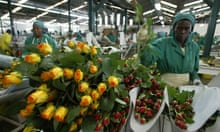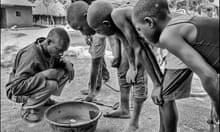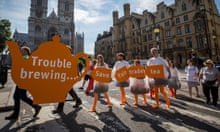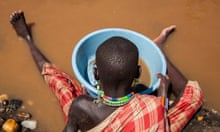In response to the growing demand of citizens in developed countries for quality consumption, the proliferation of “ethical labels” is simply staggering. For some, the purchase and consumption of goods has become a political act. News that Green & Black’s new chocolate bar will be neither organic nor Fairtrade-certified – instead, the beans have been sourced via certified scheme Cocoa Life – has caused controversy, while the world’s biggest Fairtrade retailer, Sainsbury’s, recently came under fire for dropping the Fairtrade label from its own-brand tea.
Most of these so-called ethical retailers and schemes – Cocoa Lfe included – are certainly, to my mind, not driven by “ethics”. Fairtrade, at least, was a grassroots movement aiming for changes from below, which is not always the case for the ethical labels used by some supermarkets and retailers. Those who introduce ethical labels just want to position themselves in a growing market and make a profit – and under these conditions, it is not easy for the average consumer to distinguish tares from wheat.
The Fairtrade (FT) mark is one of the most well-known and respected labels in the world, with an economic model that aims to improve the living conditions of rural producers of the global south in a solidarity approach with consumers in the north. The objective is to facilitate access to the markets of the north, to guarantee them decent prices and to eliminate the “unfair” middlemen exploiting them.
Unfortunately, the FT economic model has significant limitations that continue to generate legitimate criticism.
The FT movement is regularly accused of working with companies that have behaved unethically in the past or that are considered symbols of the unfairness of the international trading system. What is often highlighted is the gulf between the principles of the FT movement and its practices. This moral criticism, however, is insufficient. Economic criticism from the perspective of producers is needed as well.
The FT economic model faces a structural contradiction. On the one hand, if the minimum price for FT products is high, they may not find outlets. Sales will be low. The economic benefits to producer organisations will also be negligible. On the other hand, if the minimum price of FT products is “competitive”, sales may increase but the impact in terms of poverty reduction will be insignificant. Besides, due to the fierce competition caused by the proliferation of labels, the FT movement is induced to “lower” its standards – conservative minimum prices, lower requirements in terms of FT content for composite products, etc – in the hope of boosting its sales. So, it should not be a surprise that in some contexts, non-FT producers are better off than comparable FT producers. This kind of hard evidence is often downplayed by the FT movement.
Faced with the contradiction between the marketing logic of sales growth and the logic of poverty reduction at a very small scale, the FT movement has until now privileged the former.
Fairtrade protagonists tend to assert that the FT model is an alternative to the “free market” – but the reality is that it is a “parenthesis” within the conventional trading system. Once the rules of the game are laid down (financing, minimum prices, premiums, traceability), market access and prices are determined on a competitive basis, as in the case of conventional trade.
FT labelling organisations cannot guarantee that buyers involved in the movement will pay producers’ organisations a price higher than the FT minimum price. Nor can they guarantee that producer organisations can sell all their FT-certified production under FT conditions (payment of minimum prices and premiums). According to figures provided by Fairtrade International for 2013-2014, only 28% of FT coffee was sold in FT markets. Fairtrade bananas are the bestselling product (56%-64%), while FT tea is the least sold product (7%). In other words, supply is higher than demand for all FT products.
Owing to free market principles, producer organisations that usually join the FT movement are not necessarily the poorest, but those that can meet market demands – ie those with the means to afford certification fees and a certain scale of production. No wonder producer organisations from the least developed countries tend to be under-represented.
A further issue regarding the FT model is the maintaining of countries of the south in a disadvantageous economic specialisation. While most of them have been exporting primary commodities since colonial times, this has not led to economic transformations beneficial to the vast majority of their populations.
The FT movement as a whole would have more impact if it focused on manufactured goods produced using local agricultural products. This type of model would have the advantage of generating productive employment and stimulating technological innovation in the countries of the south.
